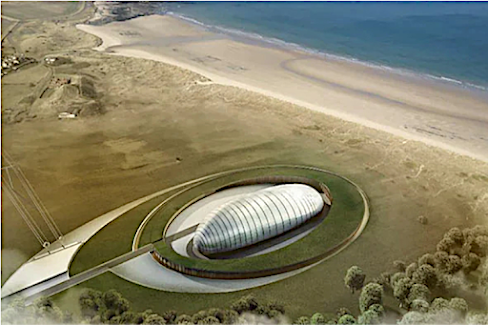Today's ELI is all about the controversial topic of nuclear power, 'Nuclear power - harnessing the energy of the atom; investigating the use of nuclear power now and in the future'.
The various types of nuclear power stations are discussed and the future of nuclear power is considered. This is followed by a discussion about siting SMRs (Small Modular Reactors) in the local area.
More activities related to reaching net zero carbon emissions can be found here.



